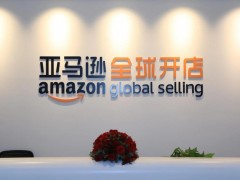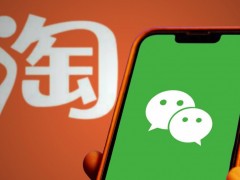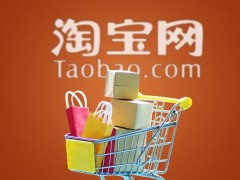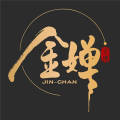Is the Alibaba cafeteria in Hangzhou outsourced?
不是的。现在年轻人买东西差不多都是在网上买的,在网上买就想到了淘宝,不仅这样,据说阿里巴巴公司的员工也是非常的幸福的。
阿里的员工卡在晚上6点的时候会充入13元的券,刷卡的时候直接抵扣,过了晚上8点就自动消失,所以员工都很乐意晚上6点再来吃饭。另外,晚上9点也一样会冲入免费券,晚上9点夜宵档就开始了,食堂会出摊夜宵和明天的早饭。阿里食堂干净卫生,而且食物种类多样,很多员工都表示吃饭的时间是一天中最幸福的,这里有来自中国南北方各地的代表性美食,最有名的还是酱肘子,老北京的传统做法,很多人都喜欢吃。
我们国内大部分的企业食堂都是一年四季基本一样的,四菜一汤,或者就是面条,导致了很多上班的同学,都不想去吃饭了,如果想要改变也是很简单,学会拥抱互联网的变化,跟阿里巴巴学一学。甚至最近风靡魔都的网红美食“南大门一米蒸”,首家登陆杭州就是在阿里巴巴的员工食堂。阿里员工食堂几乎每家档口的菜谱更新迭代的速度极快,迎合员工的需求,定制各类健康、瘦身、营养等等不同的套餐。
阿里巴巴还统计了阿里人的饮食数据:阿里人年可以吃掉495吨大米、123万个鸡蛋、117万斤面粉;食堂中的“甘其食”店铺一年卖出51玩个包子,叠起来相当于5.2个珠穆朗玛峰。作为国内科技的巨头企业,阿里巴巴的食堂当然也不乏“黑科技”。每天数万人就餐,为了解决购买排队的问题,阿里巴巴的食堂都是“智慧”餐厅,引入了刷脸AI结算技术。
员工在选完菜品之后,无需排队等待工作人员清点、收款,只需将托盘放在自助收银台,数秒内就能完成菜品清算并刷脸支付;这项AI结算技术还是由阿里内部程序员自发研究开发的,目前仅供阿里食堂使用。
Professional answer
No. Nowadays, young people buy almost everything online, and when they buy online, they think of Taobao. Not only that, it is said that the employees of Alibaba are also very happy.
Ali’s employee card will be charged with a 13-yuan coupon at 6 pm. When the card is swiped, it will be directly deducted. It will automatically disappear after 8 pm, so employees are very happy to come to eat at 6 pm. In addition, free coupons will also be charged at 9 pm. At 9 pm, the midnight snack stall will start. The cafeteria will set up a stall for midnight snacks and tomorrow’s breakfast. Ali’s cafeteria is clean and hygienic, and the food is diverse. Many employees said that meal time is the happiest time of the day. There are representative delicacies from all over China, and the most famous one is braised pork elbow, which is a traditional Beijing method. Many people like to eat it.
Most of our domestic corporate cafeterias are basically the same all year round, with four dishes and one soup, or just noodles. As a result, many working students don’t want to go to eat. If you want to change, it is also very simple. Learn to embrace the changes of the Internet and learn from Alibaba. Even the Internet celebrity food "Namdaemun Yimi Steamed Bun" that has recently swept Shanghai has its first store in Hangzhou, which is in Alibaba's employee cafeteria. The menus of almost every stall in Alibaba's employee cafeteria are updated and iterated at a very fast speed, catering to the needs of employees and customizing various health, weight loss, nutrition and other different packages.
Alibaba has also counted the dietary data of Alibaba people: Alibaba people can eat 495 tons of rice, 1.23 million eggs, and 1.17 million kilograms of flour per year; the "Ganqishi" store in the cafeteria sells 51 steamed buns a year, which is equivalent to 5.2 Mount Everests when stacked together. As a domestic technology giant, Alibaba's cafeteria is of course not lacking in "black technology". Tens of thousands of people dine every day. In order to solve the problem of queuing for purchases, Alibaba's cafeterias are all "smart" restaurants, and face-scanning AI settlement technology has been introduced.
After selecting dishes, employees do not need to wait in line for staff to count and collect payment. They only need to place the tray at the self-service checkout counter, and the dishes can be settled and paid by face recognition within seconds; this AI settlement technology was spontaneously researched and developed by internal programmers of Alibaba and is currently only used in Alibaba cafeterias.
Similar Q&A
recommend What is the name of Alibaba's artificial intelligence?
E-c News Continuously pushing e-commerce knowledge to you








Latest Q&A More
-
Do I need a trademark to open a franchise store on Pinduoduo to sell books?
#Pinduoduo#
-
How to withdraw from a Pinduoduo store
#Pinduoduo#
-
How to withdraw from Pinduoduo merchants
#Pinduoduo#
-
How to pay fees when closing a Pinduoduo store
#Pinduoduo#
-
How to withdraw from Pinduoduo
#Pinduoduo#
-
Which store on Pinduoduo is authentic?
#Pinduoduo#
-
Which stores on Pinduoduo can buy genuine products?
#Pinduoduo#
-
How to check the store under Pinduoduo
#Pinduoduo#
-
How to receive Pinduoduo online game products
#Pinduoduo#
-
How to sell the electronic version on Pinduoduo
#Pinduoduo#
E-c News 2026-03-01 13:13:13

- African netizens use China Africa cross-border e-commerce platform for online shopping
- how is the new seller of cross-border e-commerce doing?
- how can cross-border e-commerce Amazon sell on Amazon platform without goods?
- Amazon store opening process and cost analysis!
- Amazon plans to expand its pharmacy business on a large scale and will add same day delivery service
